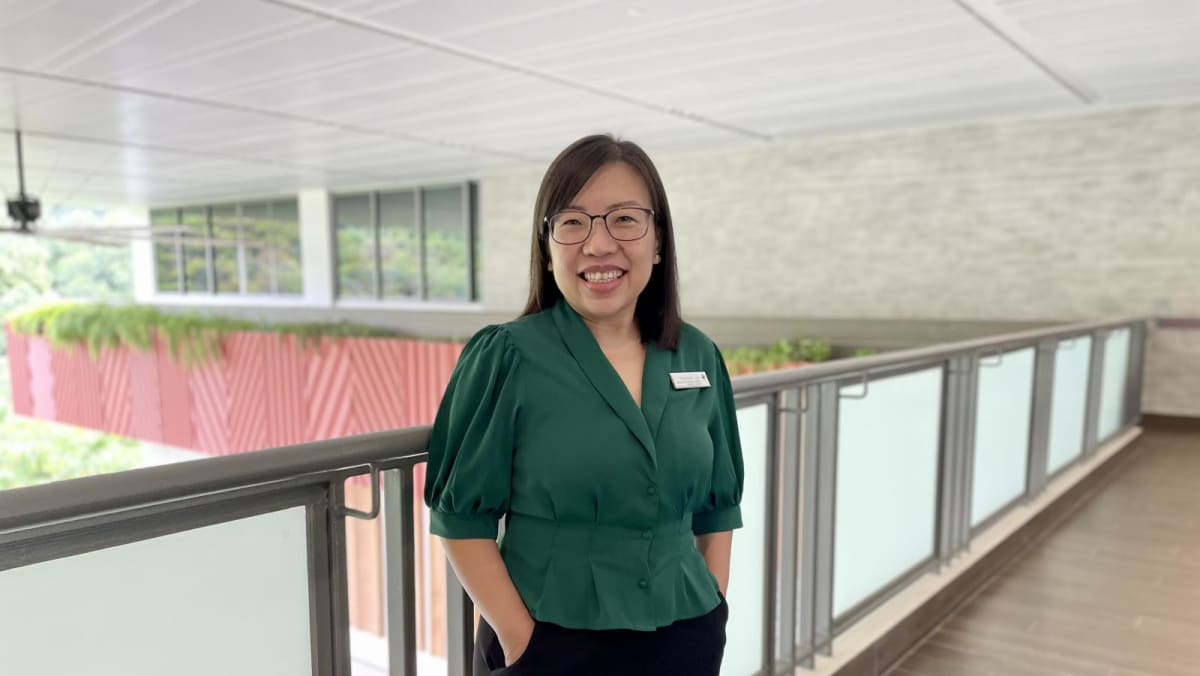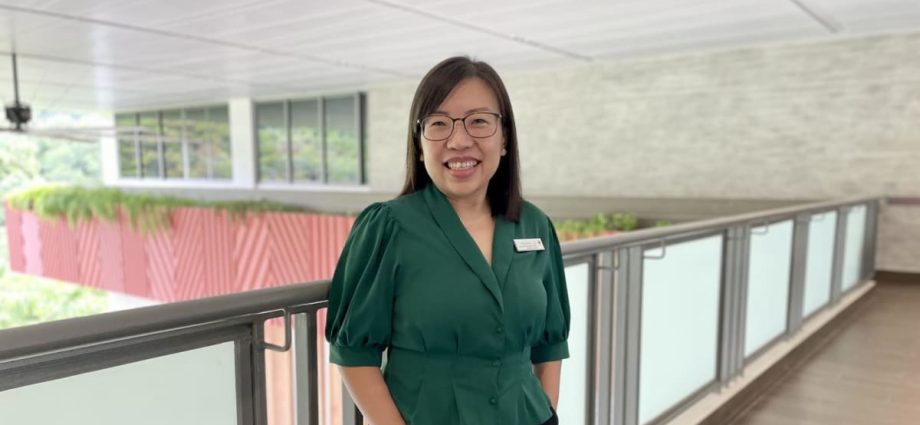
Reflecting on her appointment as the hospital’s deputy CEO, Ms Lee said she felt her appointment was a signal of trust from the hospital that she could take on bigger responsibilities and have a larger impact.
Her nursing background also brings diversity and balance to the team, she added.
We can actually be … more all-rounded in the decisions that we make because we are all innately more intuitive towards a specific group,” Ms Lee said.
“For instance, doctors will definitely gravitate towards knowing doctors’ needs a lot more than everyone else, while I obviously will be more in tune with nursing needs. So, we really need a diverse group to form the leadership team.”
RAMPING UP HOSPITAL CAPACITY
Her appointment comes as the 300-bed Alexandra Hospital prepares to serve more patients. By 2028, the hospital will be redeveloped into a 1,300-bed integrated general hospital.
Although the hospital is already stepping up on recruitment, Ms Lee said it has to be more agile, given the manpower crunch and increasing healthcare needs.
“If we continue to do things the same way, we will never have enough nurses. We know that the outcome is just going to be very dismal, but we have a runway so that nurses can rethink how they want to practise,” she said.
Alexandra Hospital has 700 nurses now in a 1,650-strong workforce. It will have to boost its headcount by 82 per cent to meet the increased bed capacity in four years.
To boost capabilities, the hospital has been rotating nurses between disciplines so that they can gain more experience in different fields.
“If we just let nurses continue to hone their skills within a specific discipline, it will take time for them to grow. We find that given the opportunities that’s on offer today for nurses, which is a lot, most people don’t know what they don’t know unless they have a chance to experience it,” she said.
“So, we are very intentional about rotating our nurses so that they have a flavour of different disciplines, even practising in different settings, so that they can also reflect and learn … where their passion lies.”
Nurses who decide to deepen their expertise in a certain area can then undergo relevant courses.
The hospital has also been sending its nurses to work outside the hospital, said Ms Lee.
She added that Queenstown – where the hospital is located – has seen a rapid transformation with the proportion of residents aged 65 and above rising from 20 per cent to over 30 per cent in under five years.
“If we are truly person-centred in our care, we must see the person as a whole, not just the condition, not just the body organ, and think about what this means when the patient is out of the hospital space,” she said.
“Because the hospital … is a very artificial environment that is catered to look after acute medical needs.
“So, this is how we have been rotating our nurses, giving them opportunities to go out into the community, so that they are more discerning as nurses, and they can actually take more ownership to redesign their practice.”
When the redevelopment is completed, a new, integrated model of care will also be implemented on a full-scale basis.
Under this model, patients can remain in the same bed after their conditions improve, instead of transferring to a community hospital. They will receive acute and subsequently step-down care tailored to their needs from the same clinical team in the same location.

